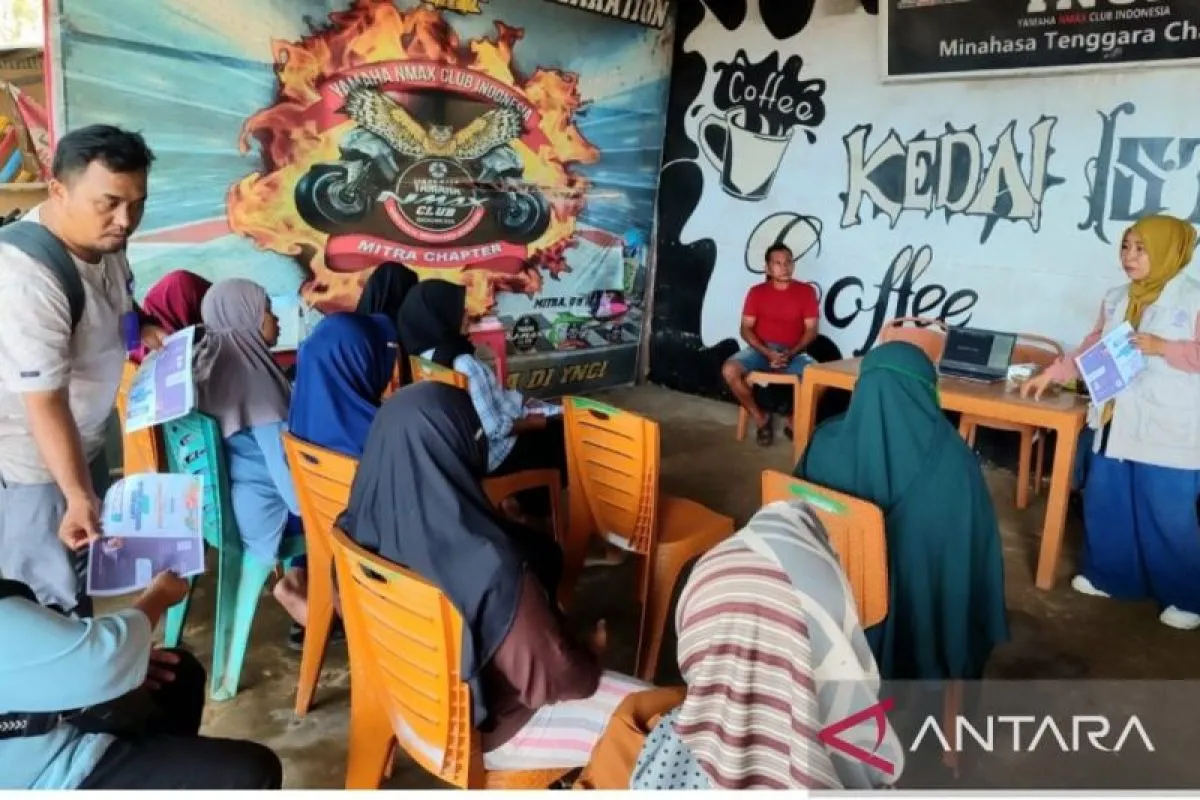News
Religious Affairs Ministry North Sulawesi Office Aims Halal Certification for Lakban Beach
WINDONESIA May 7, 2024 The WHO-2024 socialization team while educating business owners in Pangai Lakban, Mitra, Sulut, on Monday, May 6, 2024. (ANTARA/HO-Humas Kemenag).
The WHO-2024 socialization team while educating business owners in Pangai Lakban, Mitra, Sulut, on Monday, May 6, 2024. (ANTARA/HO-Humas Kemenag).
The Religious Affairs Ministry is targeting Lakban Beach in Southeast Minahasa Regency, North Sulawesi Province to obtain a Halal Tourism Village certificate.
"One of the programs enacted at Lakban Beach, East Ratatotok Village is the Mandatory Halal October 2024 (WHO-2024) program," Religious Affairs Ministry North Sulawesi Regional Office Head H. Sarbin Sehe stated in Manado City, North Sulawesi on May 6, 2024.
Sarbin said that the government, alongside the Religious Affairs Ministry's Halal Certification Agency (BPJPH) and the Office of the Destination Development and Infrastructure Deputy of the Tourism and Creative Economy Ministry, is accelerating halal certification for food and beverage products at tourist destinations. He explained that cooperation for the WHO-2024 program, which covers 3,000 tourist villages in Indonesia, is an implementation of that collaboration.
Sarbin added that there are 90 tourist village sites which are required to be halal in North Sulawesi. Thus, food and beverage vendors around tourist destinations become targets of communication and education about the halal certification obligation.
"This is a step to increase awareness about the importance of halal products in society," the Religious Affairs Ministry official said.
Sarbin further emphasized the importance of ensuring that food and beverage products are guaranteed to be halal since promotion of WHO-2024 is part of the government's efforts to accelerate halal certification throughout Indonesia. It is hoped that products which supports tourist destinations could all be halal-certified.
The direct promotion activities for the initiative provide on-the-spot halal certification registration and consultation services for employers in need of them.
With collaboration between related parties, Sarbin hopes that the halal certification ecosystem in Indonesia, especially in Southeast Minahasa, could continue to be sustainable and help increase consumer confidence in halal products from the food and beverage industry.
Source: manado.antaranews.com

